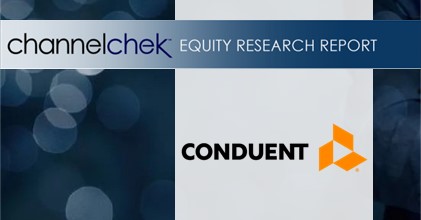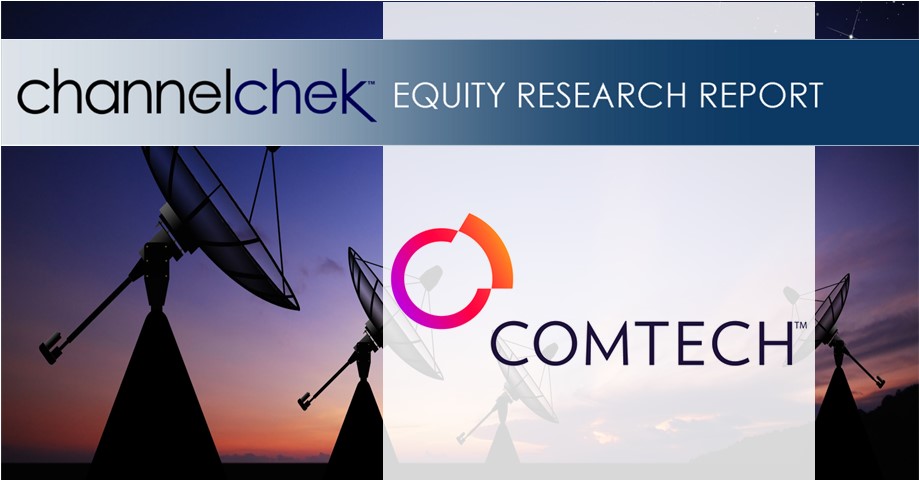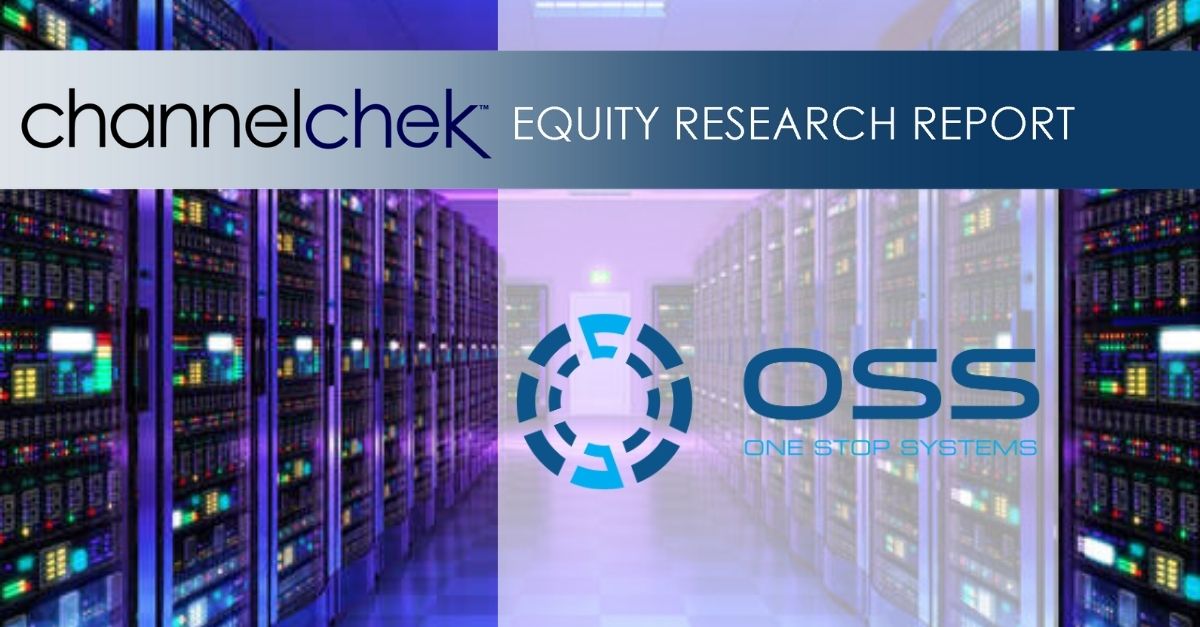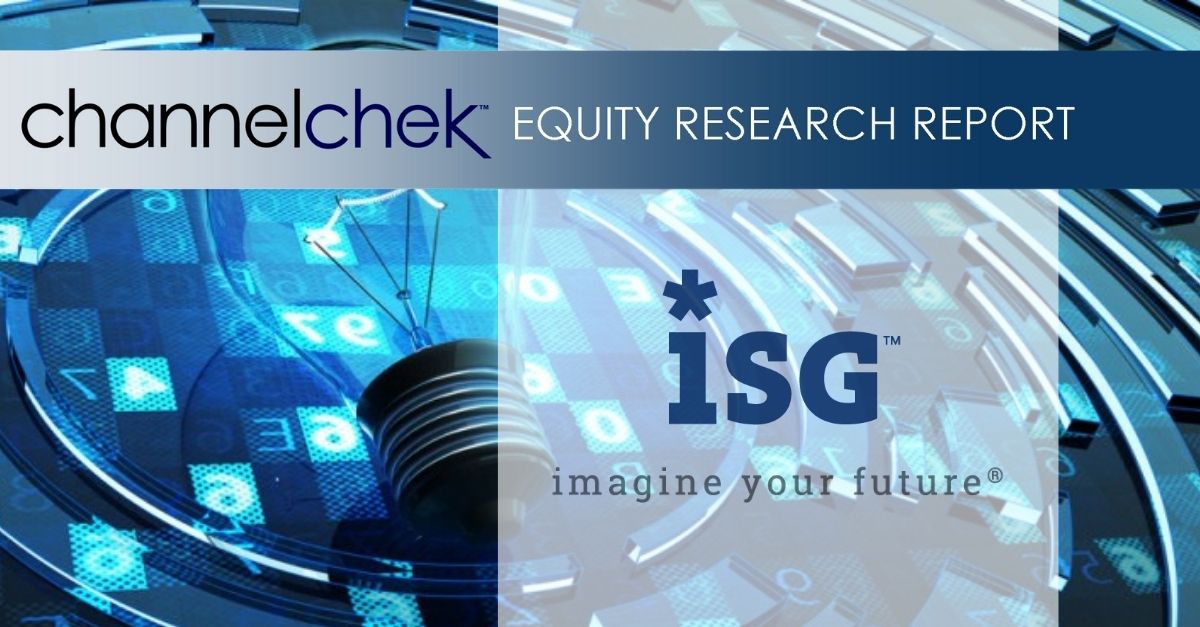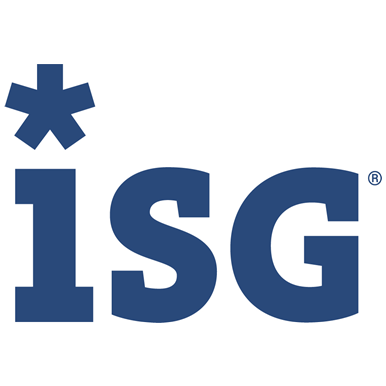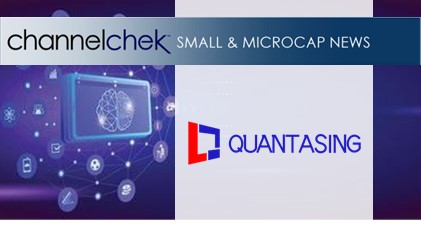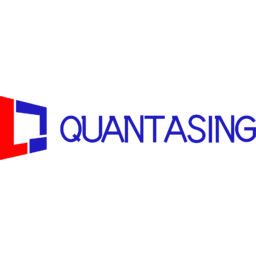Research News and Market Data on III
3/7/2024
- Reports fourth-quarter GAAP revenues of $66 million
- Reports fourth-quarter net loss of $2.9 million, GAAP loss per share of $0.06 and adjusted EPS of $0.06; records bad-debt reserve of $4.8 million in fourth quarter for client collection risk; excluding the reserve, net income and GAAP EPS would have been $0.8 million and $0.02, respectively
- Reports fourth-quarter adjusted EBITDA of $6 million
- Generates $9.7 million of cash from operations in fourth quarter
- Achieves record full-year GAAP revenues of $291 million; operating income of $15 million; net income of $6 million and GAAP EPS of $0.12; adjusted EBITDA was $38 million, adjusted net income was $20 million and adjusted EPS was $0.40
- Launches ISG Tango™, a groundbreaking sourcing platform that improves transaction speed and efficiency, and opens new market opportunities
- Declares first-quarter dividend of $0.045 per share, payable March 29, 2024, to shareholders of record as of March 19, 2024
- Sets first-quarter guidance: revenues between $65 million and $67 million and adjusted EBITDA between $6.0 million and $7.0 million
STAMFORD, Conn.–(BUSINESS WIRE)– Information Services Group (ISG) (Nasdaq: III), a leading global technology research and advisory firm, today announced financial results for the fourth quarter and full year ended December 31, 2023.
“ISG delivered record revenues of $291 million for the year, despite a soft fourth quarter due to slower client decision-making in an uncertain macro environment,” said Michael P. Connors, chairman and CEO. “We also delivered record recurring revenues of $125 million, up 16 percent, driven by our research business and our ISG platforms, including ISG GovernX® and ISG ProBenchmark®. Recurring revenues now represent 43 percent of our overall revenue, up 500 basis points from the prior year.
“With the overall IT and business services industry down 6 percent for the full year, we consider our topline growth of 2 percent to be solid.”
Commenting on the firm’s profitability, Connors said: “Our adjusted EBITDA margin of 13 percent for the year was held back by a fourth quarter that was negatively impacted by slower client decision-making and our decision to retain advisory talent in anticipation of an uplift later this year.”
Speaking to the demand environment for 2024, Connors said: “We expect client spending to accelerate as the year progresses, especially if, as expected, inflation continues to cool and central banks respond with interest rate cuts. Our portfolio of services, platforms, research and enterprise AI capabilities should position ISG at the center of a resurgence in technology investments this year.”
ISG Launches Next-Gen Sourcing Platform
ISG today announced the launch of ISG Tango™, a groundbreaking sourcing platform that digitizes all elements of ISG’s market-leading sourcing transactions business to better serve clients, improve transaction speed and efficiency and allow ISG to expand into other market segments.
Developed over the past year, the platform solution, available to enterprise buyers and service providers, draws on ISG’s unmatched data assets, intellectual property and proprietary tools, powered by AI to automate contracting and provide real-time insights that streamline the entire transaction process and accelerate time to agreement.
“Speed, real-time transaction data, provider evaluations and other market insights are important to our clients as they navigate a more complex sourcing environment,” said Connors. “ISG Tango delivers on all counts and strengthens our position as the industry’s sourcing advisor of choice.”
Connors said ISG Tango will also allow ISG to penetrate the underserved midmarket. “We believe this platform-based offering, combined with our advisory expertise, will allow us to offer a level of sourcing advisory support that would be attractive and affordable to the midmarket, thereby expanding our revenue opportunities.”
The launch of ISG Tango comes two months after ISG announced the launch of its new Enterprise AI Advisory business, which offers clients a suite of services to help navigate the complexities and implications of adopting artificial intelligence at scale. ISG has already won significant AI engagements with several large clients, including major companies in the banking, entertainment, manufacturing and public sectors.
Fourth-Quarter 2023 Results
Reported revenues for the fourth quarter were $66.2 million, down 11 percent from $74.2 million in the prior year. Currency translation positively impacted reported revenues by $0.7 million versus the prior year. Reported revenues were $40.1 million in the Americas, down 8 percent; $20.2 million in Europe, down 15 percent; and $5.9 million in Asia Pacific, down 12 percent, all versus the prior year.
ISG reported a fourth-quarter operating loss of $3.5 million, compared with operating income of $7.2 million the prior year. Reported fourth-quarter net loss was $2.9 million, compared with net income of $4.3 million in the prior year. Fully diluted loss per share was $0.06, compared with fully diluted earnings per share of $0.09 in the prior year.
During the fourth quarter, ISG recorded a $4.8 million reserve for amounts owed by a client. Excluding this reserve, net income and GAAP EPS would have been $0.8 million and $0.02, respectively.
Adjusted net income (a non-GAAP measure defined below under “Non-GAAP Financial Measures”) for the fourth quarter was $3.1 million, or $0.06 per share on a fully diluted basis, compared with adjusted net income of $6.5 million, or $0.13 per share on a fully diluted basis, in the prior year’s fourth quarter.
Fourth-quarter adjusted EBITDA (a non-GAAP measure defined below under “Non-GAAP Financial Measures”) was $5.9 million, down 47 percent from prior-year fourth quarter. Adjusted EBITDA margin (a non-GAAP measure calculated by dividing adjusted EBITDA by reported revenues) was 8.9 percent, compared with 15.0 percent in the prior year.
Full-Year 2023 Results
Reported revenues for the full-year were a record $291.1 million, up 2 percent versus the prior-year. Reported revenues were $173.2 million in the Americas, up 4 percent; $89.7 million in Europe, flat; and $28.1 million in Asia Pacific, down 5 percent, all versus the prior year.
ISG reported full-year operating income of $14.6 million, compared with $29.5 million in the prior year. The firm also reported net income and fully diluted earnings per share of $6.2 million and $0.12, respectively, versus net income of $19.7 million and earnings per share of $0.39 in the prior year. Excluding the previously mentioned reserve, net income and GAAP EPS would have been $9.8 million and $0.20, respectively.
Adjusted net income (a non-GAAP measure defined below under “Non-GAAP Financial Measures”) for the full year was $20.1 million, or $0.40 per share on a fully diluted basis, compared with adjusted net income of $26.9 million, or $0.53 per share on a fully diluted basis, in the prior year.
Full-year adjusted EBITDA (a non-GAAP measure defined below under “Non-GAAP Financial Measures”) was $37.7 million, down 13 percent from the prior year. Adjusted EBITDA margin (a non-GAAP measure calculated by dividing adjusted EBITDA by reported revenues) was 12.9 percent, compared with 15.1 percent in the prior year.
Other Financial and Operating Highlights
ISG generated $9.7 million of cash from operations in the fourth quarter, compared with $6.6 million in the prior year, and $12.3 million for the full year. The firm’s cash balance totaled $22.6 million at December 31, 2023, up 21 percent from $18.7 million at September 30, 2023.
During the fourth quarter, ISG paid dividends of $2.2 million and repurchased $1.7 million of shares. As of December 31, 2023, ISG had $79.2 million in debt outstanding, unchanged from the fourth quarter last year.
2024 First-Quarter Revenue and Adjusted EBITDA Guidance
“We expect an acceleration in client demand throughout the course of this year, in anticipation of an improving macro environment and increasing AI adoption. For the first quarter, ISG is targeting revenues of between $65 million and $67 million and adjusted EBITDA of between $6.0 million and $7.0 million. We will continue to monitor the macroeconomic environment, including the impact of FX, inflation and other factors, and adjust our business plans accordingly,” Connors said.
Quarterly Dividend
The ISG Board of Directors declared a first-quarter dividend of $0.045 per share, payable on March 29, 2024, to shareholders of record as of March 19, 2024.
Conference Call
ISG has scheduled a call for 9 a.m., U.S. Eastern Time, Friday, March 8, 2024, to discuss the company’s fourth-quarter results. The call can be accessed by dialing +1 (855) 761-5100; or, for international callers, by dialing +1 (646) 307-1088. The access code is 1749973. A recording of the conference call will be accessible on ISG’s website (www.isg-one.com ) for approximately four weeks following the call.
Forward-Looking Statements
This communication contains “forward-looking statements” which represent the current expectations and beliefs of management of ISG concerning future events and their potential effects. Statements contained herein including words such as “anticipate,” “believe,” “contemplate,” “plan,” “estimate,” “target,” “expect,” “intend,” “will,” “continue,” “should,” “may,” and other similar expressions, are “forward-looking statements” under the Private Securities Litigation Reform Act of 1995. These forward-looking statements are not guarantees of future results and are subject to certain risks and uncertainties that could cause actual results to differ materially from those anticipated. Those risks relate to inherent business, economic and competitive uncertainties and contingencies relating to the businesses of ISG and its subsidiaries including without limitation: (1) failure to secure new engagements or loss of important clients; (2) ability to hire and retain enough qualified employees to support operations; (3) ability to maintain or increase billing and utilization rates; (4) management of growth; (5) success of expansion internationally; (6) competition; (7) ability to move the product mix into higher margin businesses; (8) general political and social conditions such as war, political unrest and terrorism; (9) healthcare and benefit cost management; (10) ability to protect ISG and its subsidiaries’ intellectual property or data and the intellectual property or data of others; (11) currency fluctuations and exchange rate adjustments; (12) ability to successfully consummate or integrate strategic acquisitions; (13) outbreaks of diseases, including coronavirus, or similar public health threats or fear of such an event; and (14) engagements may be terminated, delayed or reduced in scope by clients. Certain of these and other applicable risks, cautionary statements and factors that could cause actual results to differ from ISG’s forward-looking statements are included in ISG’s filings with the U.S. Securities and Exchange Commission. ISG undertakes no obligation to update or revise any forward-looking statements to reflect subsequent events or circumstances.
Non-GAAP Financial Measures
ISG reports all financial information required in accordance with U.S. generally accepted accounting principles (GAAP). In this release, ISG has presented both GAAP financial results as well as non-GAAP information for the three and twelve months ended December 31, 2023, and December 31, 2022. ISG believes that evaluating its ongoing operating results will be enhanced if it discloses certain non-GAAP information. These non-GAAP financial measures exclude non-cash and certain other special charges that many investors believe may obscure the user’s overall understanding of ISG’s current financial performance and the Company’s prospects for the future. ISG believes that these non-GAAP measures provide useful information to investors because they improve the comparability of the financial results between periods and provide for greater transparency of key measures used to evaluate the Company’s performance.
ISG provides adjusted EBITDA (defined as net income, plus interest, taxes, depreciation and amortization, foreign currency transaction gains/losses, non-cash stock compensation, interest accretion associated with contingent consideration, tax indemnity receivables, accounts receivables reserves, acquisition-related costs, and severance, integration and other expense), adjusted net income (defined as net income, plus amortization of intangible assets, non-cash stock compensation, foreign currency transaction gains/losses, interest accretion associated with contingent consideration, acquisition-related costs, accounts receivables reserves, write-off of deferred financing cost and severance, integration and other expense on a tax-adjusted basis), adjusted net income per diluted share, adjusted EBITDA margin, and selected financial data on a constant currency basis which are non-GAAP measures that the Company believes provide useful information to both management and investors by excluding certain expenses and financial implications of foreign currency translations, which management believes are not indicative of ISG’s core operations. These non-GAAP measures are used by ISG to evaluate the Company’s business strategies and management’s performance.
We evaluate our results of operations on both an as reported and a constant currency basis. The constant currency presentation, which is a non-GAAP financial measure, excludes the impact of year-over-year fluctuations in foreign currency exchange rates. We believe providing constant currency information provides valuable supplemental information regarding our results of operations, thereby facilitating period-to-period comparisons of our business performance and is consistent with how management evaluates the Company’s performance. We calculate constant currency percentages by converting our current and prior-periods local currency financial results using the same point in time exchange rates and then compare the adjusted current and prior period results. This calculation may differ from similarly titled measures used by others and, accordingly, the constant currency presentation is not meant to be a substitution for recorded amounts presented in conformity with GAAP, nor should such amounts be considered in isolation.
Management believes this information facilitates comparison of underlying results over time. Non-GAAP financial measures, when presented, are reconciled to the most closely applicable GAAP measure. Non-GAAP measures are provided as additional information and should not be considered in isolation or as a substitute for results prepared in accordance with GAAP. A reconciliation of the forward-looking non-GAAP estimates contained herein to the corresponding GAAP measures is not being provided, due to the unreasonable efforts required to prepare it.
About ISG
ISG (Information Services Group) (Nasdaq: III) is a leading global technology research and advisory firm. A trusted business partner to more than 900 clients, including more than 75 of the world’s top 100 enterprises, ISG is committed to helping corporations, public sector organizations, and service and technology providers achieve operational excellence and faster growth. The firm specializes in digital transformation services, including AI and automation, cloud and data analytics; sourcing advisory; managed governance and risk services; network carrier services; strategy and operations design; change management; market intelligence and technology research and analysis. Founded in 2006, and based in Stamford, Conn., ISG employs 1,600 digital-ready professionals operating in more than 20 countries—a global team known for its innovative thinking, market influence, deep industry and technology expertise, and world-class research and analytical capabilities based on the industry’s most comprehensive marketplace data. For more information, visit www.isg-one.com.
View full release here.
Source: Information Services Group, Inc.

